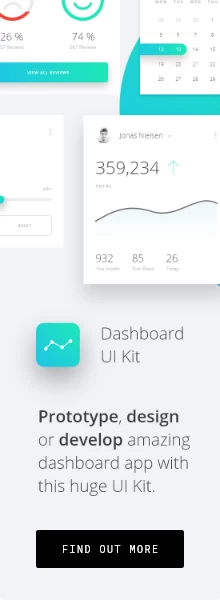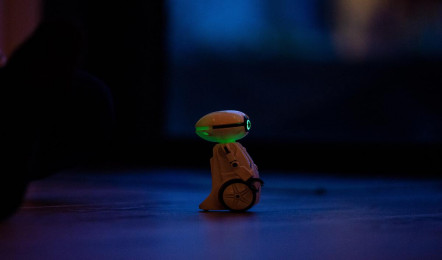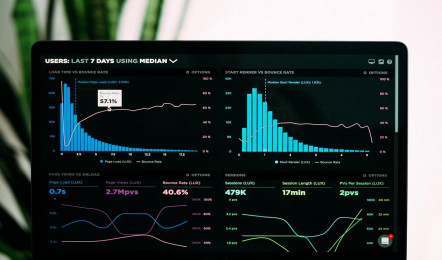Should Designers Learn to Code?
Sun.27.09.2020 BY
This is one of the most frequently asked questions out there in the world of UI/UX design - should you or should you not, as a designer, learn to code.
This is a complex question that cannot be easily answered. There are just too many variables, and the short answer is both yes and no. The long answer is slightly more intriguing, so let us jump into the reasoning a little bit further. By the end of this post, we hope to have answered most of your questions so that you’re able to make a better choice for yourself.
The pros of learning to code
It’s no secret that the HR specialists are always on the hunt for one-person armies. You’re most valuable if you can cover a wide array of jobs as the company won’t have to pay multiple people for multiple roles. This is the case with designers who can code - they are in extremely high demand. Also, if you’re both a designer and a programmer, you can expect very high paying jobs, but you have to be prepared to work hard.
Learning to code isn’t really that hard. There are so many programming languages, but a designer doesn’t need to learn most of them. HTML/CSS is quite easy for beginners, and it ties up nicely with what the designers are doing anyway. Programmers don’t even consider HTML/CSS programming, and today, it’s a must for all designers. After you master HTML/CSS, you can step into some JavaScript or even PHP, but that’s where it’s perfectly ok to stop. As a designer, you really don’t need to go all-in into programming. However, knowing just the basics of HTML/CSS/JS can greatly improve your career.
Learning the basics of programming is bound to improve you as a designer, and here’s why. Knowing the basic inner workings of web technologies will help you produce designs with web constraints in mind. This way, you’ll be able to circumnavigate the potential issues even before they pop up, simply because you’ll be able to anticipate them. Even if you don’t end up implementing your designs yourself, you’ll see that the developers will be truly thankful for such designs - they are just so much better and simpler to work with.
If you’re a freelancer, you’ll be that one-person army that we’ve discussed earlier. You’ll be that golden nugget everyone wants. Also, you’ll be able to create whatever you want. If you so choose, you can make your own products with no constraints. You won’t have to deal with designers and developers and their interaction, as you’ll be able to do it all yourself. This is a clear advantage if you choose to start your own company.
The cons of learning to code
Grass is, sadly, not always greener on the other side. While programming is not too difficult, it may be hard enough, or at the very least, it can be distracting enough. Software engineering is not engineering for no reason, and while some creativity is allowed an even necessary, programmers are usually not the most creative individuals. If you’re a designer and feel like programming is constraining you from perfecting your designs, just drop it - your creativity is your bread and butter, and you always need to be on par.
While it’s true that programmers will be thankful because you take into account their perspective, knowing how to code may impact your designs negatively. The quality of your work may be hindered because you may end up thinking too much like a developer. Also, if you’re not an expert developer, you may involuntarily confine yourself only to designs that you can code, which leaves out a world of opportunities for better designs that you can create, and better coders can implement.
It’s a misconception that all designers must learn how to code - that’s just not true. Of course, you can try, but if you start feeling that coding is just not your cup of tea, don’t force it. Remember, you can’t be good at something you don’t fully enjoy. In the end, you don’t need to code. The other side of the spectrum is true as well - there are programmers out there who despise designing. If you find such a developer, you can striker the perfect balance. Each of you will be left with what they enjoy and what they’re good at, and such collaboration is destined for great things.
If you still want to expand past just graphic design, there are so many other areas that you can explore. For instance, the area of UX design might be exactly what you’re searching for. It’s not coding, but it’s much less manual work than simply designing. Your designing brilliance plays a crucial role in creating a good user experience, but it’s still a mental process more than anything, so if you want a challenge, maybe give UX a try.
Conclusion
It’s not easy being a jack of all trades. If you can do it, then good for you, go for it! People who can do it all are very few and far between, and are always in high demand.
However, the question that we posed in the beginning and tried to answer is whether you, as a designer, should or should not learn to code. The answer is, somewhat disappointingly, maybe. It’s underwhelming, we know, however, it’s the most honest answer to give. In the end, it depends on each individual person.
If you’re someone who has an interest in coding and want to push your professional limits, then, by all means, go for it. You’ll make yourself much more attractive in the market. However, you don’t have to do it. If you’re a good designer, there will always be a place for you on the market. Sure, knowing a little code does help, but it’s not crucial, and if you find that you don’t enjoy it, don’t push yourself too hard. It may backfire, and your designs may suffer. If that’s the case, then stick to what you do best and leave the coding to someone else.




